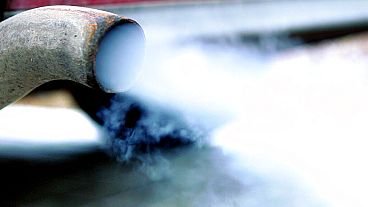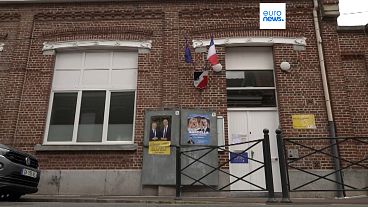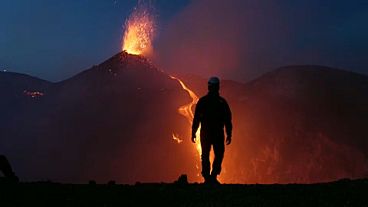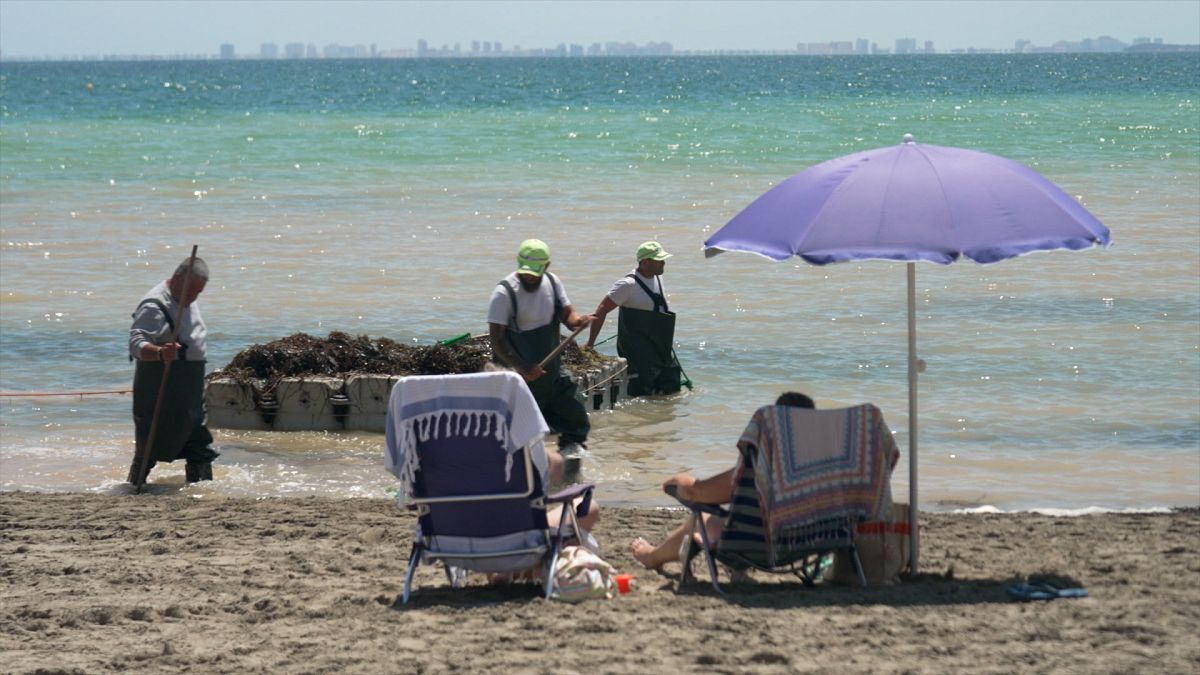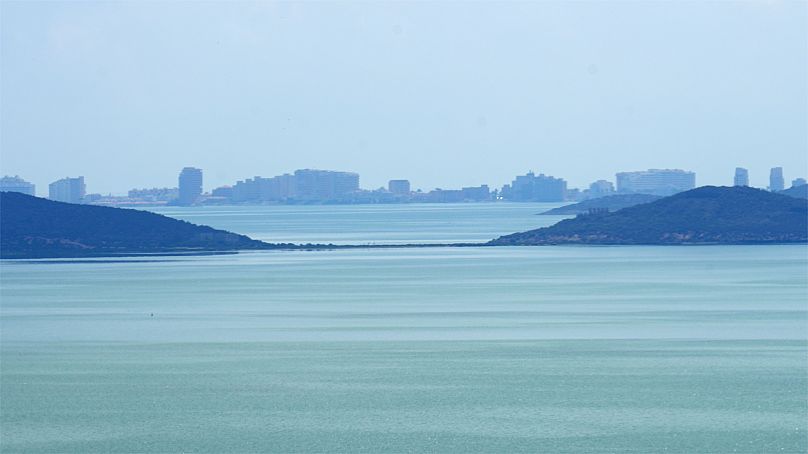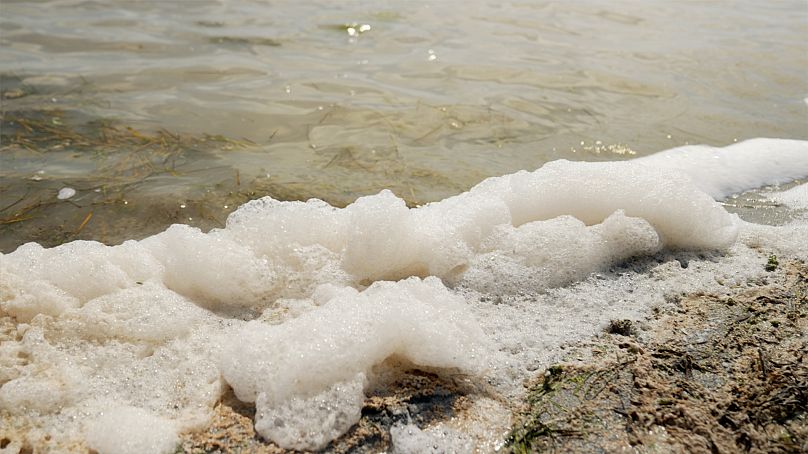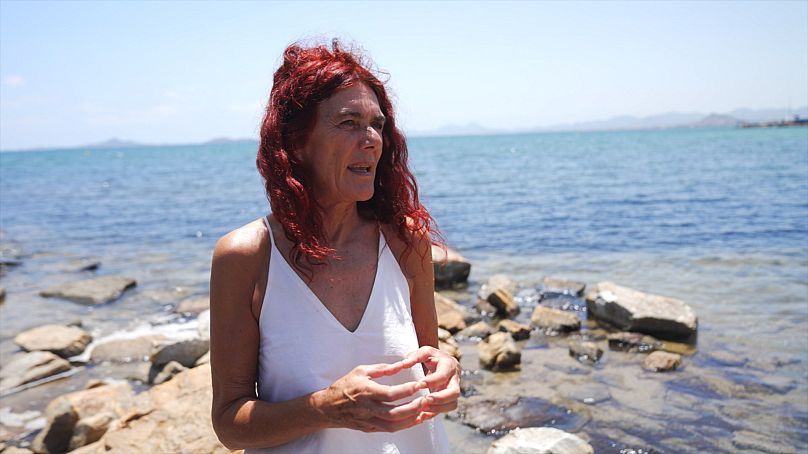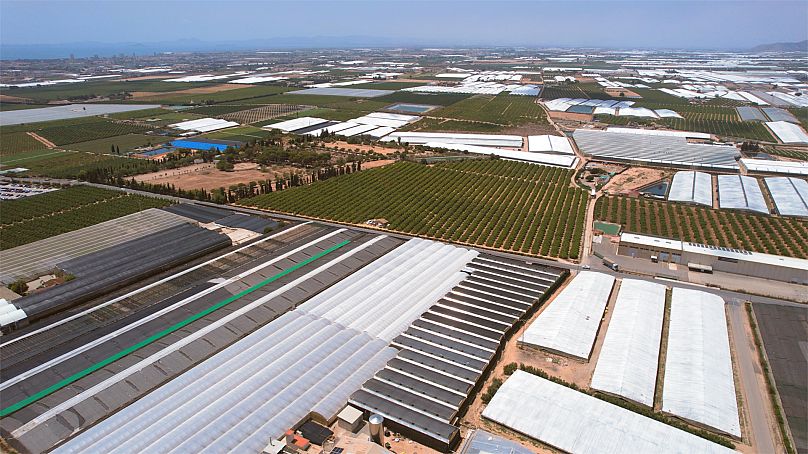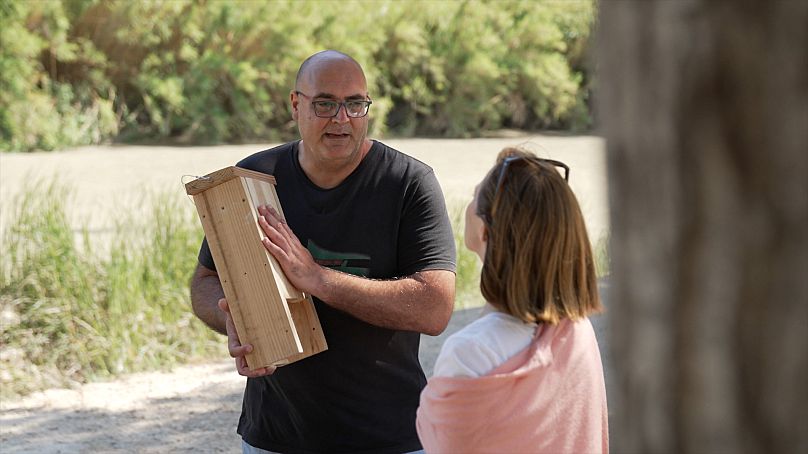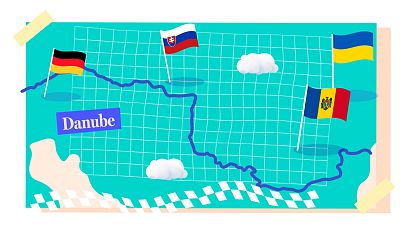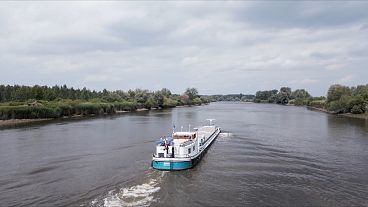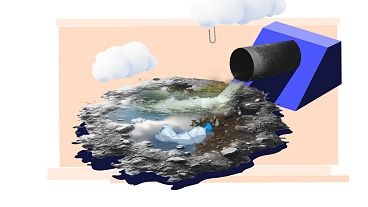From a crusade to save a dying lagoon by securing it the legal rights of a person, to building tree houses to lure back the bat population, environmental activists in Spain are doing what it takes to protect their local waterways from pollution and loss of biodiversity.
Europe’s biggest saltwater lagoon, the Mar Menor in Spain, is being slowly poisoned by pollution from intensive agriculture and livestock farming, old mines and rampant tourist infrastructure and development. Yet the irony is, it is - on paper - protected by numerous environmental laws.
Five years ago, local lawyer, professor and activist Teresa Vicente became convinced the only way to properly protect the Mar Menor was to secure it the legal status of a person.
She led an historic campaign supported by thousands of protesters, which eventually led to her Popular Legislative Proposal (a provision that lets citizens propose a law to parliament) becoming law. In September 2022 the Spanish senate passed it into law - this was the first time an ecosystem in Europe had the right to the conservation of its species and habitats and protection against harmful activities.
‘The smell of rotting vegetation grew stronger’
In the Spanish province of Murcia, we met Teresa and fellow environmental lawyer Eduardo Salazar Ortuño at the Mar Menor lagoon. As they took us to an area near to the Rambla del Albujón, the smell of rotting vegetation grew stronger as we reached the shoreline of the lagoon. Immediately in front was a large pale stretch of water - Eduardo explained it was this colour because all the underwater plant life had been killed off.
Teresa grew up near the lagoon and finds it almost unbearable to see it now.
“I would like to cry every time I come here. At the same time, a strong spirit is coming to me to fight, to give right to Mar Menor,” she told Euronews.
‘Everybody is Mar Menor - because we are nature’
She says that the lagoon is now legally considered to be a judicial personality.
“Mar Menor is a life entity, a person. It’s a subject that can defend itself. But by itself, in this case, means that everybody is Mar Menor, because we are nature.”
In April 2024 Teresa won the prestigious Goldman Environmental Prize for her work, often described as the ‘Green Nobel’.
Eduardo said there are three active judicial cases making their way through court, under the Mar Menor’s new legal status.
“The rights of the Mar Menor are [now] in front of the rights of the owners around the Mar Menor. When we go to court, we have a right in front of another right. It’s not an object that doesn’t want to be polluted, no, it’s a person who doesn’t want to be polluted.”
Companies fined for dumping brine in lagoon
While the lagoon is still being polluted, there have been some positive changes. Earlier this year companies that dumped brine into the lagoon from desalination plants were fined more than two million euros and the Spanish government has increased its budget to clean up the effects of the pollution.
Teresa’s campaign began after the eco-collapse of 2019, when fish, crustaceans and underwater plant life were all but wiped out because of severe eutrophication.
Eutrophication happens when green algae grow uncontrollably, fed by a surplus of nitrates from fertilisers. It blots out the light, stopping plants from growing and producing oxygen. In August 2021 five tonnes of dead fish were washed ashore.
Eduardo Salazar Ortuño explains: “Collapse is, you can imagine here at the shore it was full of fish, they wanted to have oxygen to breathe. And before the fish, 80 per cent of the flora disappeared! 80 per cent!”
Ramón Pagán, another environmentalist and president of a local residents’ association, said he was worried it may happen again this year, as recent heavy rains have swept vast quantities of nitrates into the lagoon.
He took us to the town of Los Nietos, a once vibrant town on the edge of the lagoon. Tourists no longer visit, as the beach is brown and muddy, with a smell of rotting plants in the air. Many houses lie empty and several restaurants have closed.
Bringing the bats back to Blanca
Meanwhile, 80 kilometres north west, the town of Blanca sits on the banks of the Segura river. Here local environmentalists are trying a different strategy to protect their waterway - they want to bring back the bats that used to live here.
Bats are important to ecosystems as they control insect populations, pollinate plants and disperse seeds. The bats used to live in caves along the cliffs by the river but the population was decimated about 20 years ago when the cliffs crumbled away, destroying the caves.
Neftalí Escribano, a European climate pact ambassador, organised a workshop in June to make wooden bat boxes that will be hung in the trees by the rivers to lure the bats back to Blanca.
Getting wise to water
Euronews and the European Commission are partnering to promote the EU's Water Wise campaign, #WaterWiseEU. Our series, Water Matters, and the EU campaign aim to raise awareness about the increasing stress on Europe's water systems and the need for sustainable water management. Water Matters will delve into various water-related issues, highlighting the importance of protecting nature and ecosystems integral to the water cycle. Through engaging content, Euronews and the European Commission hope we can inspire individuals and communities to become #WaterWiseEU.

